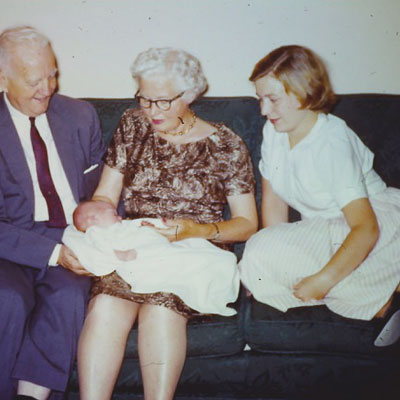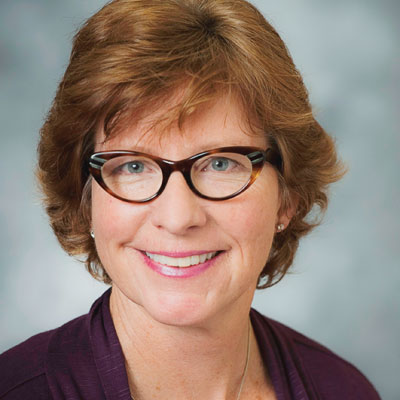11/12: Straight Shot from Here to There
November 11, 2015
As part of FCA’s 30 Days of Caregiving blog during National Family Caregivers Month, former FCA staff members were asked to be guest bloggers as part of a unique “Throwback Thursday” series. They were asked to address how FCA has influenced their work in their current positions, what they learned at FCA that they have carried forward, and if they were King or Queen for a day, what they would make happen for family caregivers. FCA is pleased that so many of its former staff members, wherever they may be, have remained in the fields of health care, social services, research and public policy, and still are advocates for caregiving families.
My path from family caregiver to Family Caregiver Alliance to Kaiser Permanente has been a pretty straight shot.
I became a caregiver when I was a senior in high school and my mother was diagnosed with ALS or Lou Gehrig’s disease. She was just 39 years old and the mother of five children between the ages of 11 and 19. My mother lived eight full years with her disease even as her ability to walk, then care for herself, and then speak all whittled away. Still, she led our family through from the beginning to the end. From her spot on the couch and with her early computer-assisted speaker, she gave encouragement, advice, reprimands, directions and love to all of us. And for our part we all learned how to be caregivers, grocery shoppers, cooks, cleaners, carpool drivers, and more. We had to learn how to hire, train and supervise in-home care workers, figure out how to get the dog, the wheelchair and everyone else into the station wagon, how to give showers, do range of motion exercises, puree her dinner, and get our homework done. Somewhere along the way I heard about Family Caregiver Alliance (at that time known as Family Survival Project [FSP] still in pilot stage of development) and called asking about what services did they provide and could they help us. I got a little bit of information about hiring in-home help but that’s about all. At the time, FSP didn’t quite know how to help with a working Dad and five young adults/kids sharing one caregiving job.
 A few years after my mother died, my father’s mother began to need more help than could be provided in her retirement home. She was in her mid-90s and along with being frail she was having trouble with her memory and then incontinence. We moved her into a skilled nursing facility but the care was sub-par and she was miserable. We brought her to the family home and again brought in some home care supplemented on evenings and weekends by whichever kids were around to help. Again I called FSP looking for support and information. I received great information about dementia, changes to look for and ideas for handling things like wandering.
A few years after my mother died, my father’s mother began to need more help than could be provided in her retirement home. She was in her mid-90s and along with being frail she was having trouble with her memory and then incontinence. We moved her into a skilled nursing facility but the care was sub-par and she was miserable. We brought her to the family home and again brought in some home care supplemented on evenings and weekends by whichever kids were around to help. Again I called FSP looking for support and information. I received great information about dementia, changes to look for and ideas for handling things like wandering.
Both my mother and grandmother died at home, peacefully and not in pain. I think we were lucky in that regard as we could have used hospice-type services and support. Unfortunately for us, at that time hospice was reserved for those with cancer. Caregiving was definitely a team sport in our house and I think we all took different things from it. One of my sisters is now a Hospice and Palliative Care nurse. I went a slightly different route but not by much. During our caregiving years I was really struck that there were no services available to help us out. No one to explain what might lie ahead of us, how to prepare or how to support each other. When caring for my grandmother I began to realize how widespread the need was and I scratched plans for law school and instead completed San Francisco State University’s Master of Arts in Applied Geronotology degree, did my thesis on family caregiving and, most importantly, went to work for Family Caregiver Alliance.
I learned a tremendous amount about the different facets of caregiving during my years at FCA—from policy development, codifying operations in California’s Caregiver Resources Centers, conducting research about the impact of caregiving on families, and drafting consumer fact sheets on a wide variety of conditions and support solutions. I took this knowledge to Blue Shield of California where I helped build health improvement programs for members of their Medicare Advantage plans. In 2005, I was offered an opportunity to work with Kaiser Permanente’s Care Management Institute in Oakland focusing my work in the areas of Elder Care and Palliative Care. In this role I have the honor of working with teams of clinicians (physicians, nurses, social workers, chaplains, pharmacists, program managers and more) throughout Kaiser Permanente to care for and support members with age-related conditions like dementia and those with serious and advanced illnesses including some with ALS, cancer, and other complex conditions. Family caregivers are also instrumental in the care of these members. My hope and goal is to help ensure that family caregivers are included in our care teams and are provided information, training and education about the medical side of their loved ones’ care. No less important, I’m working with colleagues and family caregivers both inside and outside Kaiser Permanente to figure out ways to attend to the non-medical needs of caregivers, including emotional support, respite, legal and financial counseling, and in-home support.
Doctors told my family there was nothing they could do for my mother, and then another set of doctors said the same thing about my grandmother. In both cases they sent us home and basically said, ‘good luck.’ We had no idea what to do or how. My work now is to help other families receive not only the best medical care for their loved ones but everything else they’ll need along their journey. As I said, a wonderful, eventful, pretty straight line.
— Helene Sullivan Martel, MA, Director, Elder Care & Palliative Care
Care Management Institute, Kaiser Permanente

